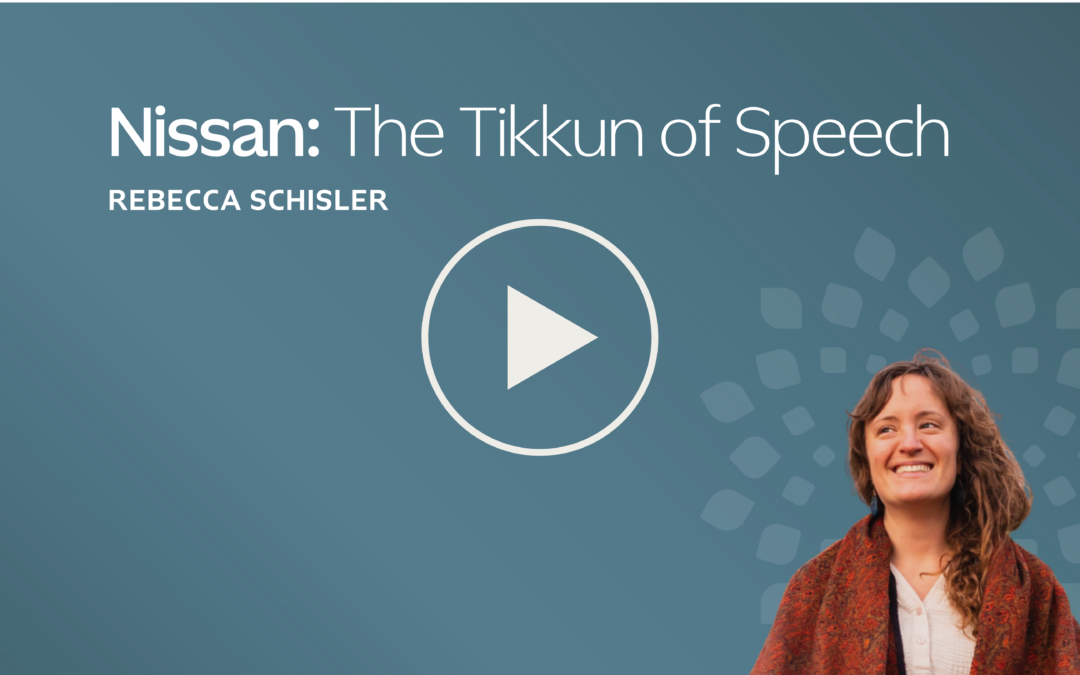
The Tikkun of Speech in Nissan
Each month offers an opportunity for a tikkun (“repair”), a rectification of some aspect of our being. The month of Nissan, this season of spring awakening and liberation, invites us into the tikkun of speech.
Pesach literally means “mouth speaks,” and it is known that how we utilize our voices, words, songs, and speech is key to our redemption from mitzrayim, from the narrow places of our lives.
I deeply appreciate a teaching from Reb Nachman via his disciple Reb Nosson that there are four levels of speech associated with the four cups of wine we drink at the Passover seder. Thus, the seder can be a journey through our rectification of these four levels, which both build upon each other and are interpenetrating.
The first level is adam b’tzalmo – a person and their self. This represents our self-talk. Are we speaking to ourselves with love and kindness? When we notice highly critical or self-shaming voices, can we pause and actually think or speak kinder words to ourselves?
The second level is adam v’chavero – a person and their friend. This is how we talk to one another. Are we doing so with love, honesty, clarity, and respect, seeing the other person as b’tzelem Elohim, created in the divine image? When someone says something upsetting, can we practice pausing to better support ourselves in responding wisely and thoughtfully rather than reacting?
The third level is tefillah – adam v’makom – this is how a person talks to the divine, what we call prayer. How might we rectify our prayer lives this season? Are we speaking to God as if our prayers matter, as if they are truly being received? Are we speaking from our hearts, from authenticity, or just engaging in liturgical recitation by rote? Are we praying at all?
The fourth level is nevuah – this is when the divine speaks through us, what our tradition calls prophecy. What does it mean, what does it take, what does it feel like to make oneself available as a tzinor, a channel for a greater loving intelligence to flow through us? How do we become an instrument of the divine? Perhaps when we attend to those first three levels of speech, we can be better prepared for the deeper listening that makes possible the channeling of truth in ways that others can fully receive.
Our tradition teaches that words create worlds. Bringing attention and renewed energy this month to our speech is a profoundly important spiritual practice if we are to co-create the more beautiful world for which our hearts yearn.
As we approach Pesach this year, may we remember to slow down enough to listen before we speak. May our words be fitting vessels for the truth of our hearts so that they may be received by those who need to hear them. And may we each know the delight of expressing our truth in authentic, beautiful, and healing ways.





